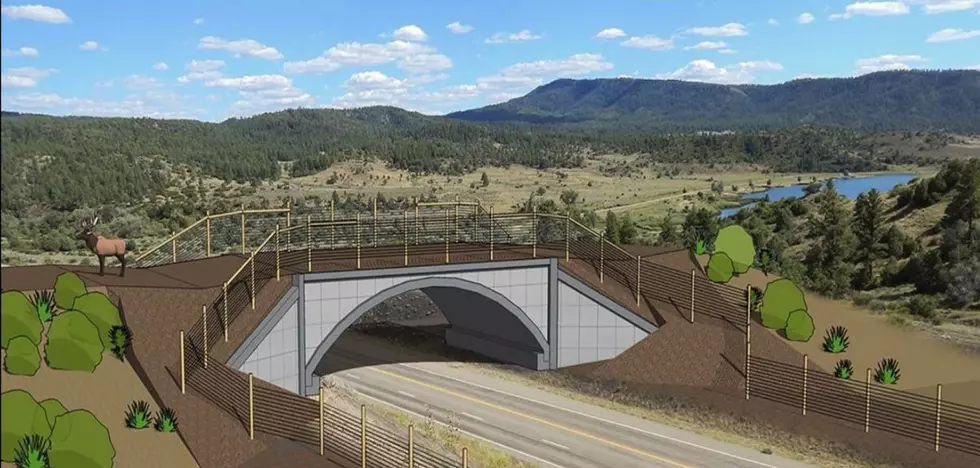
New Colorado Wildlife Overpass Being Added in 2021
Colorado wildlife are getting a new way to cross the road.
Colorado Parks & Wildlife and Colorado Department of Transportation are teaming on an $11.3 million project that includes a new wildlife overpass and underpass in southwest Colorado.
Construction is scheduled to start in the spring and will add several features to Highway 160 between Durango and Pagosa Springs. Currently, about 60 percent of the crashes in that region are attributed to wildlife-vehicle collisions.
Here are the projects that will be done:
- Construction of a wildlife underpass structure just west of the U.S. 160 and CO 151 intersection at MP 126.8
- Construction of a wildlife overpass structure just east of the U.S. 160 and CO 151 intersection at MP 127.3
- Installation of an 8-foot-tall exclusion fence along both sides of U.S. 160 throughout the project limits, approximately a two-mile stretch from MP 126 - 128
- Construction of earthen escape ramps and deer guards along the length of fencing
- Installation of a large deer guard on CO 151 at the approach to U.S. 160, similar to a cattle guard but much wider to prevent deer from jumping across and into the highway corridor
- Extension of the existing westbound passing lane on U.S. 160 at the CO 151 intersection
- Extension of the westbound left-turn acceleration lane on U.S. 160 at the CO 151 intersection
“This is a heavily used corridor by vehicles and an important area in the San Juan Basin for big game,” said Scott Wait, a senior terrestrial biologist for Colorado Parks and Wildlife in a press release.
“Deer and elk spend the warm months in the high country to the north; but most big game move to the important winter range areas south of the highway during the winter. So there is a huge number of deer and elk that cross the highway at that location.”
CDOT has built more than 60 wildlife mitigation structures and installed about 400 miles of big game fencing throughout the state.
The Southern Ute Indian Tribe is also partnering on the project and helping find the construction.
“Hunting is an extremely important component to the Southern Ute Indian Tribe and culture and it is considered vital to keep these traditions alive," said Steve Whiteman, acting director of Natural Resources in the press release.
"The Tribe has long maintained a positive working relationship with the state of Colorado, and looks forward to the collaboration with CPW and CDOT to bring this important project into reality.”

Colorado's Wild Big Game Populations
More From K99






